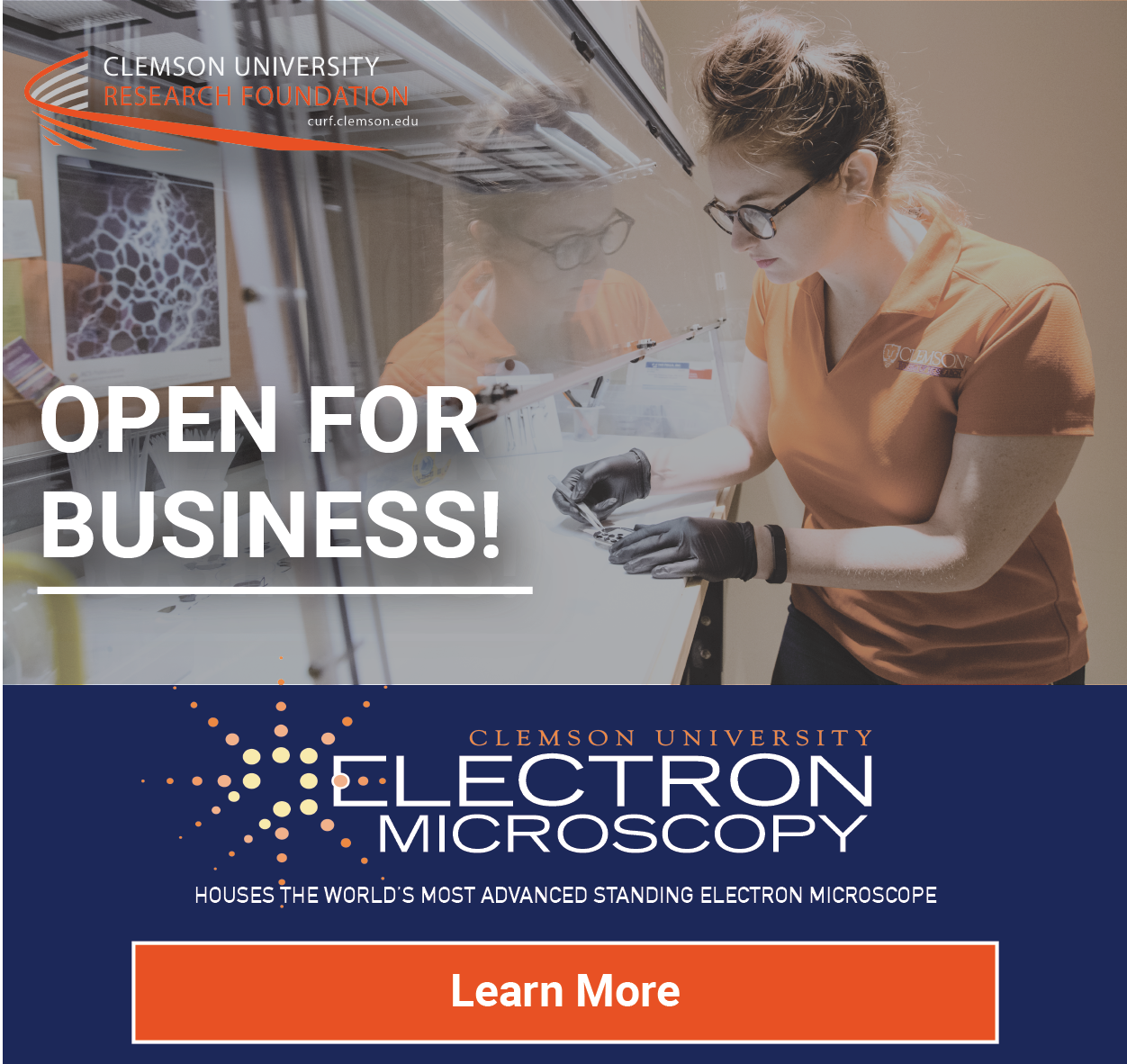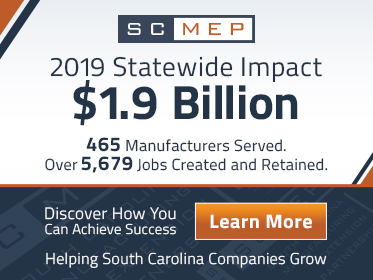In an August 7 post, we highlighted the connection between South Carolina industry and in their senior capstone course. ABB, a global leader in electrification, robotics, automation, and motion, is a regular partner with Clemson Mechanical Engineering capstone via their Mechanical Power Transmission (MOPT) group based in Greenville. We recently asked Thomas Kuckhoff, Product development engineer, and Hunter Brooking, MPT Sales Training Manager, about their thoughts on working with these undergraduate student teams on behalf of ABB.
Tell us what you do at ABB and how it relates to the capstone course.
Thomas: A MOPT product development engineer’s role is to design and validate performance of mechanical power transmission products then bring them to market. The process of narrowing down on the solution is something we do every day at ABB. We don’t have the answers in a textbook. The only difference between right and wrong is what we’re able to validate in our lab. This connects well with the capstone course as there is no one right answer. The students develop solutions to the problem at hand and justify it through engineering problem solving process over the course of the semester.
Hunter: My responsibility at ABB is for the training of 100+ sales engineers every year. I’m also responsible for our Customer and Product Training Early Career Program. We hire 4 to 10 new college grads every year and put them through a 9-10 month technical sales training program before assigning them to a field sales territory. For me, being able to engage with students working on these design projects in their senior year allows me to see talent early. I can connect with them, inform them about our program, and hopefully lead them to our business in the future.
What benefits to your business do you see by working with Clemson on the capstone course?
Thomas: For our office in Greenville, being a sponsor has had a tremendous effect. For one, it gives the students an introduction to the ABB footprint, not just in South Carolina, but in the US. As Hunter said, we’ve had the opportunity to welcome some students as full-time employees. Through the semester, we get to see and collaborate with 16 to 20 engineers while they work on our project. We get insights into the next generation of engineers and how they approach complex problems, which helps us evaluate our internal operating procedures for solving similar problems.
Hunter: Yes, absolutely we have seen benefits. ABB is based in Switzerland. It’s presence in North America was not always as strong as we wanted. With the purchase of the Baldor-Reliance® and Dodge® brands in 2011, we got that North America presence. Capstone allows us to introduce students to ABB even sooner. Our early career program really tries to bring on the best talent possible from the strongest universities, such as Clemson.
Personally, what do you find satisfying about being directly involved with Clemson students on behalf of ABB?
Hunter: For me, I’ve always been a strong believer in giving back to the communities you grow up in and around. Clemson was a strong part of my upbringing. My dad graduated from Clemson in 1978. I grew up in a small down 30 minutes from Clemson. I was always at Clemson football games on the weekends and Clemson was my number 1 choice for college. I was a senior at Clemson doing my capstone project almost 10 years ago, and without somebody sponsoring a project, I would not have been able to complete the course and graduate. So, if I can give back my time and help students every semester, I am going to do everything I can to make that happen.
Thomas: I completely agree with that. Outside of being an alum and giving back, it allows us the opportunity to outline the value of each student’s shiny new engineering degree and help to show each student that they have all the resources needed to succeed as a professional engineer. The project is not just a feather in their cap, but a great tool to understand what part of the design process each student is passionate about. Some like the fabrication and some gravitate to the early strategy. It’s fun to help these students find out where their interests lie.
Do you have any comments for other companies considering partnering with Clemson on a capstone project?
Hunter: My main point would be: If we don’t share the knowledge and expertise that we’ve gained since graduating, how do we really expect students to perform like we need them to? The more we share and prepare them for, the more well-rounded they’re going to be. And if we can show them real examples of how we have used various science or engineering degrees to build a successful career, that gives them confidence to do the same.
Thomas: For many engineering teams allocating hours on a project is a traceable cost and those costs can add up quickly. A $10,000 donation earns a sponsor an entire semester of several teams of student engineers in a nationally ranked engineering curriculum working on their project. You can’t come close to that in value if you are contracting engineers. Also, hiring a new engineer who doesn’t match your culture can have huge hidden costs. The capstone project gives a sponsoring company a great opportunity to take that risk out of their hiring process as they get to know the students over an entire semester.
For more information and to request contact, please visit http://cecas.clemson.edu/MECapstone.html or email MECapstone@clemson.edu







Be the first to comment on "Clemson University; Industry Perspective on Connecting with the Ideas and Workforce of the Future"